Article Outline
Explore Weight Loss Treatments


Metformin vs. Ozempic: What Are the Key Differences?
Metformin is a decades-old, affordable medication with a strong safety record, while Ozempic is a newer option praised for diabetes control and has shown significant weight-loss results (Ozempic is not fda-approved for weight loss, however).
The challenge is deciding which is right for your body, budget, and long-term health. This guide compares both: how they work, common side effects, costs, and which situations favor one treatment over the other.
What is Metformin?
Metformin is the most commonly prescribed medication for type 2 diabetes. It's an oral pill that belongs to a class of drugs called biguanides.
This generic medication has been used safely for over 50 years and remains the first-line treatment recommended by the American Diabetes Association for most people with diabetes mellitus.
How Metformin Works
Metformin primarily reduces glucose production in your liver through a process called hepatic gluconeogenesis.
It also improves how your body responds to insulin, enhancing insulin sensitivity and helping your muscles absorb glucose more effectively from your bloodstream.
What is Ozempic?
Ozempic (semaglutide) is a newer diabetes treatment that belongs to a class called GLP-1 receptor agonists.
It mimics a natural hormone called glucagon-like peptide-1 that your intestines produce after eating. Ozempic comes as a pre-filled injection pen for weekly subcutaneous injection.
How Ozempic Works
Ozempic stimulates insulin production when your glucose levels are elevated, reduces glucagon release from your pancreas, and significantly slows gastric emptying.
This GLP-1 mechanism also affects your brain's appetite centers, which explains why many people experience significant weight loss while using it.
Metformin vs Ozempic: Key Differences
The main differences between metformin and Ozempic lie in their form, cost, and results:
Mechanism of Action
Both medications target blood sugar control but use completely different approaches to achieve glycemic control.
Metformin
Metformin works primarily in your liver by:
- Blocking glucose production during fasting periods
- Improving insulin sensitivity in muscle and fat tissues
- Slightly reducing glucose absorption in your intestines
Ozempic
Ozempic activates GLP-1 receptors throughout your body to:
- Increase insulin secretion only when blood sugar is elevated
- Suppress glucagon release to reduce liver glucose production
- Slow gastric emptying to prevent blood sugar spikes
Effectiveness for Type 2 Diabetes
Both medications effectively lower A1C levels and improve blood sugar regulation but clinical studies show different strengths.
Metformin
Clinical trials consistently show metformin reduces A1C levels by 1-2% on average. It's particularly effective for people with newly diagnosed type 2 diabetes who still have good insulin production.
Metformin also provides cardiovascular benefits and may reduce risks of heart attack and cardiovascular events over time.
Ozempic
Ozempic demonstrates superior A1C reductions of 1.5-2.5% in clinical studies.
The medication excels at preventing post-meal blood sugar spikes and provides consistent glucose control throughout the day. Comparing compound semaglutide vs Ozempic shows similar effectiveness for diabetes treatments since they are both semaglutide treatments.
Effectiveness for Weight Loss
Weight management represents a key difference between metformin vs ozempic for many patients.
Metformin
Metformin produces modest weight loss of 2-5 pounds on average. Weight management occurs gradually through improved insulin sensitivity and reduced insulin resistance.
Ozempic
Ozempic delivers significant weight loss averaging 12-15 pounds in clinical trials. It is important to note that Ozempic is not approved by the fda for the treatment of weight loss. The medication's appetite-suppressing effects make it particularly effective for people struggling with food cravings and portion control.
Start your weight loss journey with personalized GLP-1 injections or explore affordable metformin extended-release oral options based on your goals.
Administration and Dosing
Dosing frequency and administration methods differ significantly between these medications.
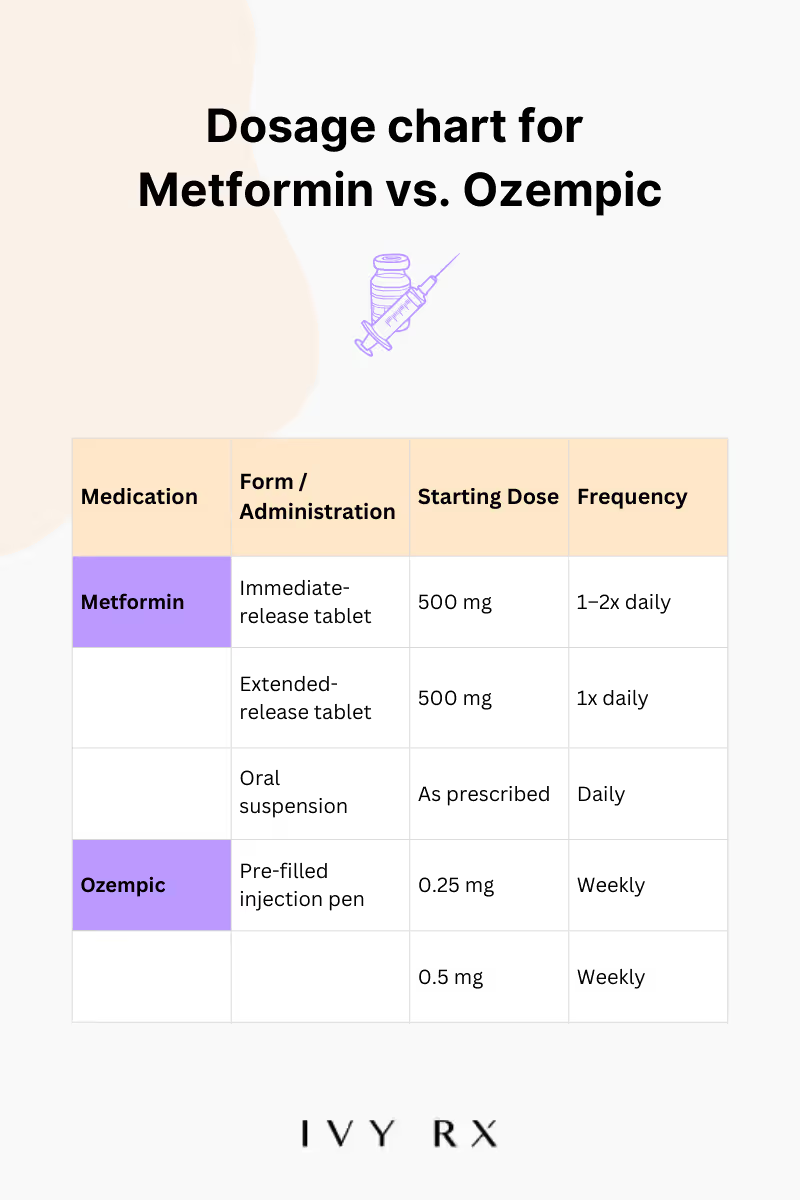
Metformin
Metformin comes as:
- Immediate-release tablets taken 1-2 times daily with meals
- Extended-release tablet formulations taken once daily
- Oral suspension for people who have difficulty swallowing pills
Starting doses typically begin at 500mg daily, with gradual increases based on blood sugar response and gastrointestinal side effects. You can reference detailed metformin dosage charts for specific guidelines.
Ozempic
Ozempic requires:
- Weekly subcutaneous injection using a pre-filled injection pen
- Rotation of injection sites (abdomen, thigh, or upper arm)
- Refrigerated storage until first use
Starting dose is 0.25mg weekly for 4 weeks, then 0.5mg weekly with potential increases to 1mg or 2.4mg based on response and tolerability.
Benefits and Side Effects
Both Metformin and Ozempic can have side effects, ranging from common and mild, to rare and more serious:
Metformin
Metformin offers several benefits:
- Proven cardiovascular protection and reduced cardiovascular risk
- Very low risk of blood sugar dropping too low
- May help with Polycystic Ovary Syndrome and fertility goals
- Potential skin benefits for some people
Common adverse effects include gastrointestinal issues like diarrhea and stomach upset, especially when starting treatment.
Ozempic
Ozempic provides unique advantages:
- Significant weight loss and appetite control
- Once-weekly dosing convenience
- Strong A1C improvements
The medication carries a black box warning for multiple endocrine neoplasia type 2 and family history of medullary thyroid carcinoma.
Cost and Insurance Coverage
Metformin vs ozempic cost represents a major consideration for long-term treatment planning.
Metformin
Metformin remains extremely affordable:
- Covered by virtually all insurance plans
- Medicare Part D provides comprehensive coverage
Ozempic
Ozempic costs are significantly more than Metformin:
- Brand-name pricing ranges $1100-$1600 monthly without insurance
- Some people qualify for manufacturer savings programs
If you’re looking for a cheaper alternative to Ozempic, metformin and other options may provide effective solutions depending on your health goals. Start your weight loss program today with affordable metformin or GLP-1 injections.
Similarities Between Metformin and Ozempic
Despite their differences, both medications share important characteristics:
- Both effectively lower A1C levels and improve glycemic control
- Neither typically causes dangerous blood sugar drops when used alone
- Both may provide cardiovascular benefits for high-risk patients
How to Choose the Best Option
Selecting between metformin and Ozempic depends on your individual health profile and treatment priorities.
Consider Your Primary Goals
If blood sugar control is your main concern, metformin offers proven effectiveness as a first-line treatment with decades of safety data.
For combined diabetes management and significant weight loss, Ozempic provides superior results but requires greater commitment to managing side effects.
Factor in Cost and Insurance
Although no insurance for both medications with Ivy Rx, budget-conscious patients often start with metformin due to its generic availability and universal insurance coverage.
Those with better financial resources may prefer Ozempic's superior weight loss and dosing convenience, although Ozempic is not fda-approved for this use and may be harder to access as a result.
Can You Take Metformin and Ozempic Together?
Yes, many people successfully combine metformin and Ozempic for enhanced diabetes management and weight loss results.
This combination leverages metformin's liver-focused glucose control with Ozempic's multi-pathway approach. Clinical studies show improved A1C reductions and weight loss outcomes when both medications work together.
Always consult with your medical provider before combining any medications.
Maximize your results with personalized metformin treatment combined with GLP-1 injections under medical supervision
Warnings and Precautions
Both medications require careful monitoring and awareness of potential serious adverse effects.
Metformin
Metformin warnings include lactic acidosis risk, especially in people with kidney disease, liver problems, or cardiovascular disease.
Avoid metformin during illness, dehydration, or before medical procedures requiring contrast dye.
Ozempic
Ozempic carries a black box warning for thyroid cancer risk and should never be used by people with personal or family history of medullary thyroid carcinoma or multiple endocrine neoplasia type 2.
Start Your Weight Loss Journey With Ivy Rx Today!
With Ivy Rx you can order Metformin, start personalized GLP-1 injections, or even combine both with doctor-led care, free delivery, and no insurance needed.
Our medical evaluation process guides you through the steps to manage your blood sugar or weight.
Join thousands of users feeling better and more in control
Order affordable metformin options or personalized GLP-1 injections today

Ivy RX patients
Members of Ivy RX branded medications were paid for their testimonials.
Related
Resources

5 Best Peptides for Energy & Fatigue Relief in 2026
We explain the top peptides for energy and easing fatigue, plus tips on choosing the right protocol and what to know before...

Does Microdosing GLP-1 Work? What the Evidence Shows (2026)
Does microdosing GLP-1 actually work for weight loss or appetite control? Learn what patients experience, what evidence exists, and key limitations.

Is it Safe to Take Metformin & Ozempic Together? [2026 Guide]
Wondering if you can take metformin and Ozempic together? Learn how they work, benefits, side effects, and who this combo is right for in this 2026 guide.

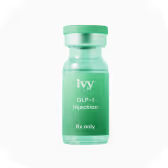






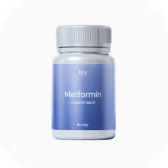

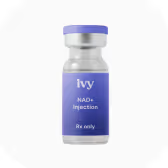



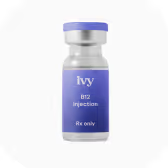
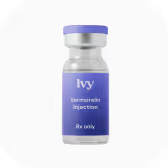

.avif)

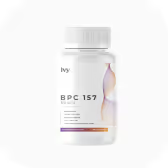

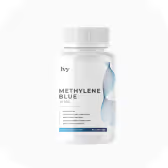


.png)


